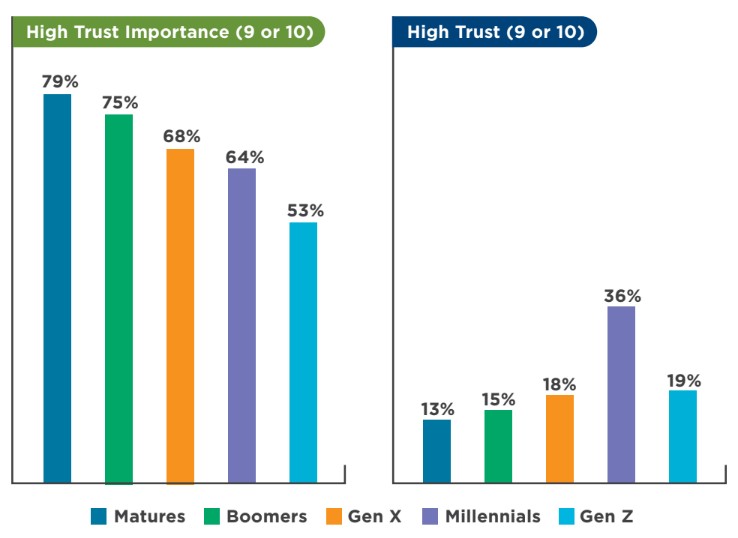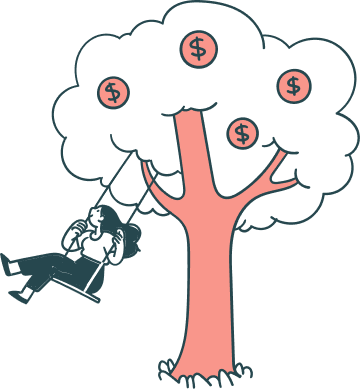Influential donors are integral to nonprofit growth, providing not only critical funding but also valuable networks and credibility. For fundraising professionals, maintaining trust with these key supporters is essential for long-term success—and the stakes are higher than ever. According to Give.org’s Donor Trust Report, an overwhelming majority of donors believe that trust is a prerequisite to giving.

While trust matters to every donor, it is especially crucial with those who wield significant influence. These donors can shape your nonprofit’s trajectory, open doors to new opportunities, and amplify your mission. Here’s how to build and maintain trust with influential donors at every stage of your relationship.
1. Keep Payments Secure
Payment data is among the most sensitive information your nonprofit collects. Failing to protect it can quickly erode donor trust and expose your organization to legal and financial risks. Here’s how to keep donor payment information safe:
- Review PCI compliance standards: All nonprofits that process payments—regardless of size—must comply with PCI DSS (Payment Card Industry Data Security Standard). This ensures cardholder data is encrypted and handled securely, reducing the risk of breaches.
- Choose PCI-compliant platforms: Make sure your donation, matching gift, and fundraising management platforms are PCI compliant and use encryption. Most reputable vendors will provide documentation of their compliance.
- Train your team: Regularly train staff and volunteers on payment security best practices, and update protocols as new threats and solutions emerge.
To ensure ongoing security, implement regular audits of your payment systems and update encryption protocols as necessary. Additionally, stay informed about evolving security regulations to safeguard both your donors’ information and your nonprofit’s reputation.
2. Transparently Explain How Donations Are Used
Transparency is the foundation of trust, especially for influential donors who want to see the impact of their contributions. Here’s how to communicate openly with these donors:
- Create impact reports: Develop annual or quarterly reports that showcase your organization’s achievements and financials. For influential donors, consider personalized reports that highlight the specific outcomes their gifts made possible.
- Explain funding sources and uses: Be upfront about where donations come from and how they are allocated. If a donor is passionate about scholarships, for example, let them know if you’ve secured grants from foundations supporting similar initiatives.
- Share stories and data: Use a mix of stories, visuals, and hard data to illustrate the difference donor support makes. By using both storytelling and data, you foster deeper emotional connections and ongoing commitment, demonstrating that your organization is a trustworthy steward of donations.
Furthermore, Thompson Grants’ guide to grant compliance addresses transparency from a compliance and oversight perspective. For example, effective grants management, including rigorous oversight, internal controls, and public reporting, demonstrates to both agencies and donors that funds are used as intended. This level of openness is especially important to influential donors, who expect high standards of accountability and stewardship.
3. Use Industry Best Practices for Data Management
Robust data management is essential for compliance, reporting, and relationship-building. Influential donors expect professionalism and stewardship at every touchpoint, which is only possible with accurate, well-organized data. By centralizing data and implementing oversight, nonprofits can ensure timely, accurate reporting, reassuring donors that their contributions are managed responsibly.
Adopt these best practices for effective data management:
- Hire data experts: Employ an in-house technology professional or outsource to a consultant to ensure your data systems are secure and efficient.
- Regularly audit databases: Conduct routine audits to identify errors, gaps, or vulnerabilities.
- Standardize data entry: Implement clear procedures for entering and updating donor information.
- Centralize your database: Use a unified system to manage donor and fundraising data, simplifying tracking and reporting. If you rely heavily on grant funding, consider using online grant databases to better track all relevant grant data in one place.
Deep Why Design’s guide to nonprofit data analytics underscores the importance of these practices. The authors explain that accurate, well-organized data enables nonprofits to comply with funding requirements and meet organizational standards. Their insights emphasize that regular audits and standardized entry procedures improve data quality, allowing nonprofits to provide transparent, reliable reporting to donors and funders (like grantmakers) alike.
Industry best practices in data management are not just about operational efficiency; they are key to demonstrating accountability, transparency, and respect for donor trust. Prioritizing these practices establishes a strong foundation for deeper, more influential donor relationships.
4. Communicate About Organizational Challenges
Trust isn’t just about celebrating wins. It’s also about being honest when things don’t go as planned. Influential donors appreciate candor and are often more willing to help if they understand the challenges you face. Here’s how to communicate effectively:
- Focus on solutions: When discussing setbacks, emphasize what you’re doing to address them and how donors’ support remains vital.
- Engage personally: Reach out to influential donors for coffee chats or face-to-face meetings to discuss challenges and gather input.
- Stay positive but honest: Balance optimism with transparency. Don’t sugarcoat problems, but do highlight your commitment to improvement.
- Ask for feedback: Invite donors to share their thoughts and suggestions. They may have valuable insights or resources.
- Express gratitude: Always thank donors for their continued support, even during tough times.
Influential donors value transparency about setbacks and the steps you’re taking to address them. Focus on openly reporting on impacts by providing detailed updates on how donor contributions are helping to address challenges. Share specific outcomes, metrics, and real-world examples to demonstrate the tangible difference their support is making, even during difficult times.
Next Steps for Fundraising Professionals
Maintaining trust with influential donors is an ongoing process that requires diligence, transparency, and proactive communication. Here’s how you can start strengthening these relationships today:
- Audit your current payment and data management practices for compliance and security.
- Review your donor communications for clarity, transparency, and personalization.
- Schedule regular check-ins with top donors to share updates and invite feedback.
- Develop or update your impact reporting to clearly show how gifts are making a difference.
By prioritizing trust at every stage, your nonprofit can inspire confidence, foster loyalty, and encourage ongoing support from significant donors.



